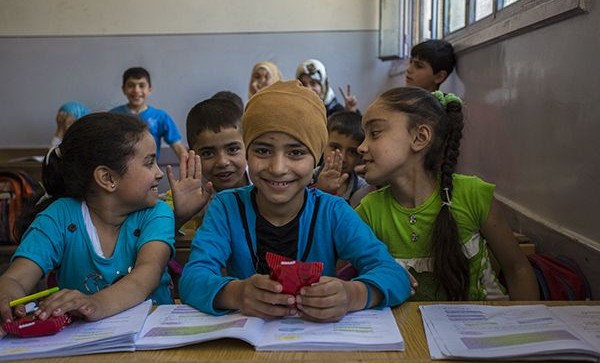As the end of the academic year draws closer in the Arab world, a question arises as to why satisfaction with the level of education is decreasing in both schools and universities. Why is it that in every gathering, regardless of the nature of the discussion—be it about economics, media, politics, or sciences—there is a unanimous opinion that the education standard is at the root of all our failures, weaknesses, and shameful annual development reports?
If low educational levels are justifiable in states with limited resources or high population densities, it is difficult to understand the reasons for unsatisfactory education standards in wealthy states such as the Gulf countries. It is quite unbelievable that although Saudi Arabia is allocating one fourth of its annual budget—an estimated 200 billion US dollars—to education, students and families still complain at the end of each academic year.
It is appropriate to use Saudi Arabia as an archetype to discuss the Gulf States since it is represents an interesting case worth considering. Approximately 20 years ago, general education in the Kingdom began to take a new shape with the spread of private schools that were limited in number and restricted to the wealthy. They soon started to spread but at the expense of the quality of both educator and education. Parents began to specifically demand outdoor activities and English language courses, the two privileges that public schools were lacking, particularly in primary education stage. A more important demand was easing the process of providing students of working age with higher education degrees to guarantee a place for them in the universities and specializations they want.
Private schools, particularly in big cities, expanded until each district contained at least one private school. Students of both genders flocked to these schools with the aim of acquiring high-quality education different to that of the public system, which was now considered outdated. However, what Saudi families didn’t realize is that they had fallen into a trap: the superiority of a private school education was only an illusion. Genuine good quality education existed only in few private schools with lavish fees that only the elites could afford. This was discovered when an exam was imposed on high school graduates to assess their standards and decide whether or not they deserved a university seat. The surprise was bitter: not only were high school students weak in English but the general education level appeared quite low.
As the dates of university admission exams draws closer, mothers complain and express fear that their sons and daughters will fail to acquire a place at a university due to poor performance in these exams. Most parents were under the impression that their children were exceedingly intelligent due to the school certificates that didn’t reflect their true performance or potential.
It is said that if one wishes to find the best residential area in any city, look for where the head of the municipality is residing. If one was looking for the best hospital, it must be the one where ministry of health officials treat their own families. Therefore, the best education must be the schools where education ministry official sent their children. In keeping with this, it was surprising to discover that not only did these officials abstain from sending their children to public or private schools, they specifically targeted schools with international syllabuses. It is shocking for an education official in any country to send his son or daughter to an education facility that doesn’t adopt a national education system but rather a foreign one.
There is a growing trend where many Saudi families, even those with average incomes, send their children to international schools to ensure they are taught according to good syllabuses and useful knowledge. These systems also develop individual capabilities in the sciences, mathematics, technology, and English. Had the fees been more affordable, the demand for these schools would have caused national education specialists to reflect that their education is no longer convincing, and was unrealistic and unsatisfactory.
Within this context, it is significant to ask: Why must a Saudi family seek a school with foreign system to ensure their children attain good results in university admission exams? This question is essential for whoever wants to face the truth.
All this is regarding general education. As for university education, another question should be raised: What if there was also an exam to measure the capabilities of university graduates in all disciplines? Will we blame the labor market if the results are unflattering?
